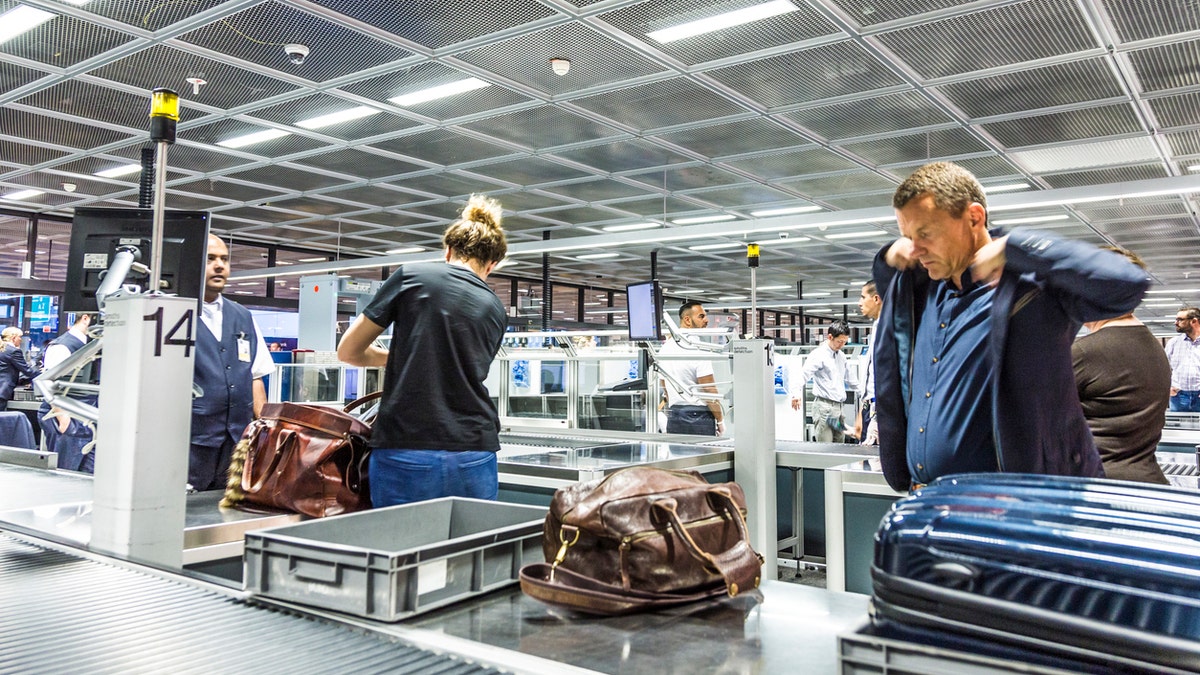
A new set of security screening procedures are going to start impacting US-bound flights this Thursday. (iStock)
All incoming flights to the United States will be subject to new security screening procedures before takeoff, including both American citizens and foreigners possibly facing security interviews from airline employees, the U.S. government said Wednesday.
Both American air carriers and global airlines must comply, affecting all the 2,100 flights from around the world entering the U.S. on any given day. The directive is far broader than an earlier Trump administration ban on laptops inside the cabins of some airliners, which only targeted 10 Mideast cities and their airlines.
Confusion greeted the new rules. While five global long-haul carriers said they would begin the new security interviews on Thursday, each offered different descriptions of how the procedure would take place, ranging from a form travelers would be required to fill out to being verbally quizzed by an airline employee. Other carriers insisted their operations remained the same.
NAACP WARNS AFRICAN-AMERICANS ABOUT FLYING ON AMERICAN AIRLINES
"The security measures affect all individuals, international passengers and U.S. citizens, traveling to the United States from a last point of departure international location," said Lisa Farbstein, a spokeswoman for the U.S. Transportation Security Administration. "These new measures will impact all flights from airports that serve as last points of departure locations to the United States."
The new rules come at the end of a 120-day window for new U.S. safety regulations to be implemented following the lifting of the laptop ban imposed on some Mideast airlines.
They include "heightened screening of personal electronic devices" and stricter security procedures around planes and in airport terminals, Farbstein said. She did not elaborate.
U.S. carriers will be affected by the new rules. Delta Air Lines said it was telling passengers traveling to the U.S. to arrive at the airport at least three hours before their flight and allow extra time to get through security. United declined to comment, while American did not immediately respond to a request for comment.
The International Air Transport Association, which represents 275 airlines, did not immediately respond to a request for comment. However, Vaughn Jennings of the trade group Airlines for America said that while the new rules include "complex security measures," U.S. officials have been flexible.
FOLLOW US ON FACEBOOK FOR MORE FOX LIFESTYLE NEWS
"The safety and security of passengers and crew is the highest priority for U.S. airlines and we remain committed to ensuring the highest levels of security are in place throughout the industry," Jennings said.
However, not all were convinced of the new measures' effectiveness.
"The part of the new measures I don't like is that airline personnel are being put back into the security screening process," said Jeffrey Price, an aviation-security expert at Metropolitan State University of Denver. "Airline ticket agents aren't always the best at conducting security measures."
This is just the latest decision by President Donald Trump's administration affecting global travel.
In March, U.S. officials introduced the laptop ban in the cabins of some Mideast airlines over concerns Islamic State fighters and other extremists could hide bombs inside of them. The ban was lifted after those airlines began using devices like CT scanners to examine electronics before passengers boarded planes heading to the U.S. Some also increasingly swab passengers' hands to check for explosive residue.
The laptop ban as well as travel bans affecting predominantly Muslim countries have hurt Mideast airlines. Emirates, the region's biggest, said it slashed 20 percent of its flights to the U.S. in the wake of the restrictions.








































